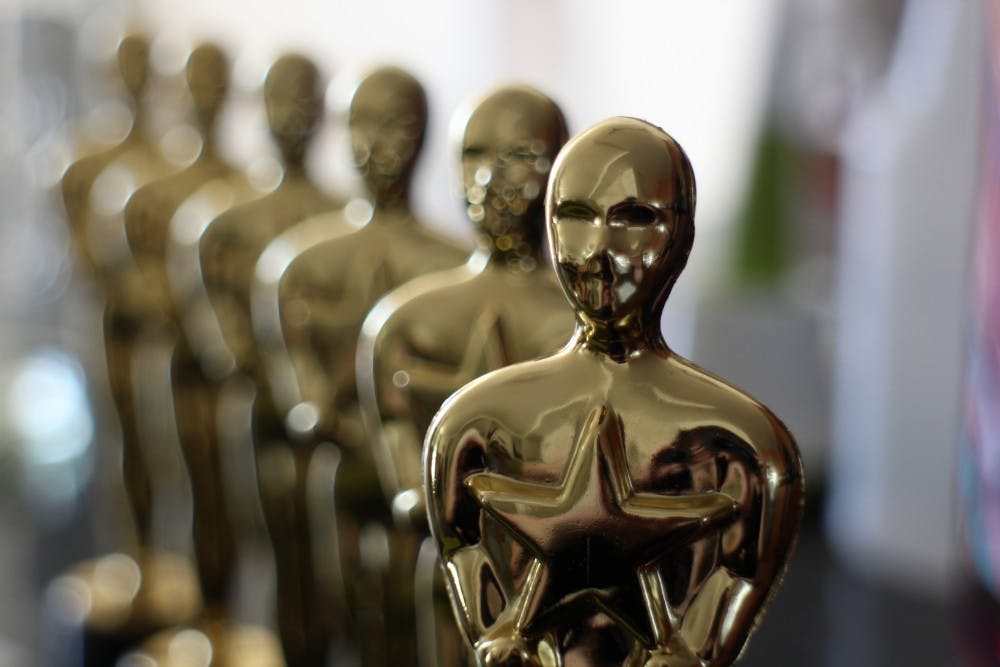From: Silver Screen
How the Oscars have really changed over the past 20 years

The 89th Academy Awards aired on the last Sunday in February and it was a night filled with great speeches, stunning performances and an unforgettable “Steve Harvey-esque” flub. The event has evolved over the last 20 years, keeping pace with natural evolution but also as a result of serious criticism and complaints. While the changes have been welcomed by many of the participants and their fans, inequities seem to persist and the Oscars will likely continue to evolve.
It was comedian Jimmy Kimmel’s first time hosting the award show this year and he brought along many Oscar firsts. However, all of these stunts were trumped by the final award of the night when the original Bonnie and Clyde, Warren Beatty and Faye Dunaway, announced the wrong winner for Best Picture. As it turns out, Beatty and Dunaway were handed the envelope for Actress in a Leading Role which was awarded to Emma Stone for her role in “La La Land” and mistakenly announced “La La Land” as Best Picture. The actual winner was the coming-of-age drama, “Moonlight.” The mistake was quickly noticed and the “La La Land” producers had to hand over their Oscar statuettes to the producers of “Moonlight” after nearly completing their own acceptance speech.
While many believe that this was the first instance of an Oscar mix-up, it has happened before. At the 36th Academy Awards in 1964, Sammy Davis Jr. was handed the wrong envelope and announced the winner for Best Adaptation or Treatment Score when he was supposed to be presenting Best Original Score.
One real example of change at the Oscars that has occurred as a result of public criticism pertains to the selection of Best Picture. The Academy has been frequently criticized for the movies that have been nominated. Prior to 2009, the Academy only nominated five movies for Best Picture. In 2009, outcry erupted since favorite movies such as “Wall-E” and “The Dark Knight” were not nominated. This objection continued until the Academy announced that at the 82nd Academy Awards, 10 movies would be nominated for Best Picture in order to give more opportunity to different kinds of movies. In 2010, “District 9” and “Up,” were nominated even though experimental sci-fi and animated movies were previously less likely to be considered. This increase in nominations impacted the way these movies were viewed and gave them increased credibility.
Also during the 82nd Academy Awards, the Academy changed its voting process. Originally, winners were chosen by direct popular vote. There are many issues with this system and can lead to the winning film not having widespread support from the Academy. The Academy decided to change its voting process to instant-runoff voting. This allows members of the Academy to rank their choices instead of choosing just one. This process is complicated but allows the movies chosen to be well respected by a wide array of members from the Academy.
More recently, the Oscars have been criticized for a lack of diversity of the actors nominated. In this regard, the 89th Academy Awards took a step in the right direction. Last year, the Oscars were under heavy fire for their lack of racial diversity with the spread of the hashtag, #OscarsSoWhite. This year, there was a rise in movies with a more diverse cast such as “Moonlight”, “Fences” and “Hidden Figures.”
Barry Jenkins, the recipient of the Academy Award for Best Adapted Screenplay, said in his speech, “You know, I tell my students that I teach sometimes: Be in love with the process, not the result. But I really wanted this result because a bajillion people are watching, and all you people out there who feel like there’s no mirror for you, that your life is not reflected, the Academy has your back, the A.C.L.U. has your back, we have your back, and for the next four years, we will not leave you alone. We will not forget you.” This was also the first time black nominees were represented in all four acting categories.
Recent award ceremonies have been an outlet for many celebrities to broadcast their opinions about current controversial political movements. This did not stop in the wake of President Donald Trump’s immigration ban leading to Iranian director Asghar Farhadi, winner of Best Foreign Language Film for “The Salesman”, to boycott the event. In a speech read in his absence he said, “My absence is out of respect for the people of my country and those of other six nations whom have been disrespected by the inhumane law that bans entry of immigrants to the U.S. Dividing the world into the ‘us’ and ‘our enemies’ categories creates fear.”
Criticism about gender diversity also abounds. Over the last 10 years, half of the Best Picture winners had a male actor that was nominated for an Academy Award. Yet, there is no single instance in the past 10 years that the Best Picture winner had a female nominated for Best Actress. Whether this is a result of the films created or the voting is in question. Yet, attention to these discrepancies hopefully cast light on the impressive performances of all actors, regardless of gender and race.
While this year’s Oscars came along with the normalities you would expect, such as fancy attire, tear-jerking speeches and subpar jokes from a late night host, there were many firsts this year that made the event an exciting watch.
silverscreen@theeagleonline.com




